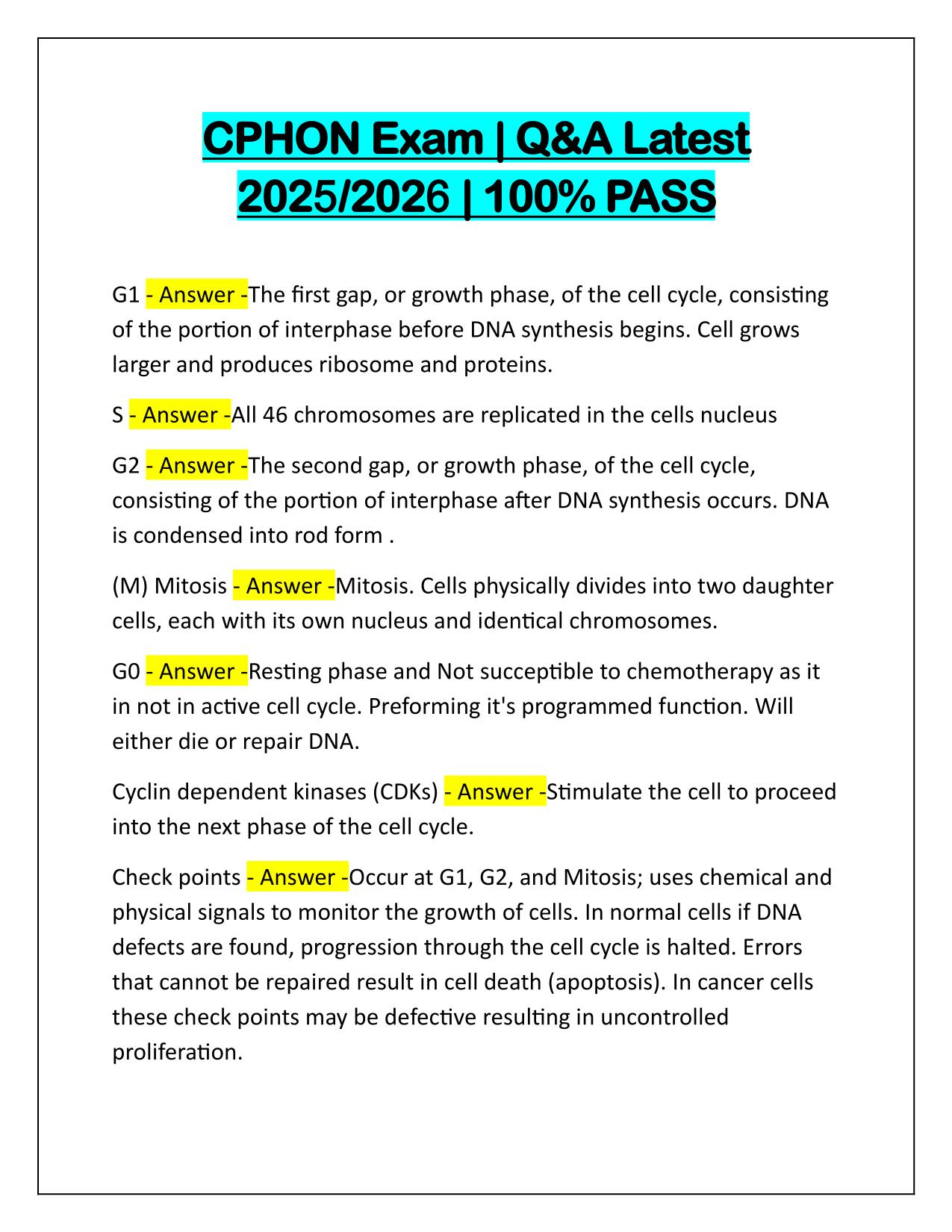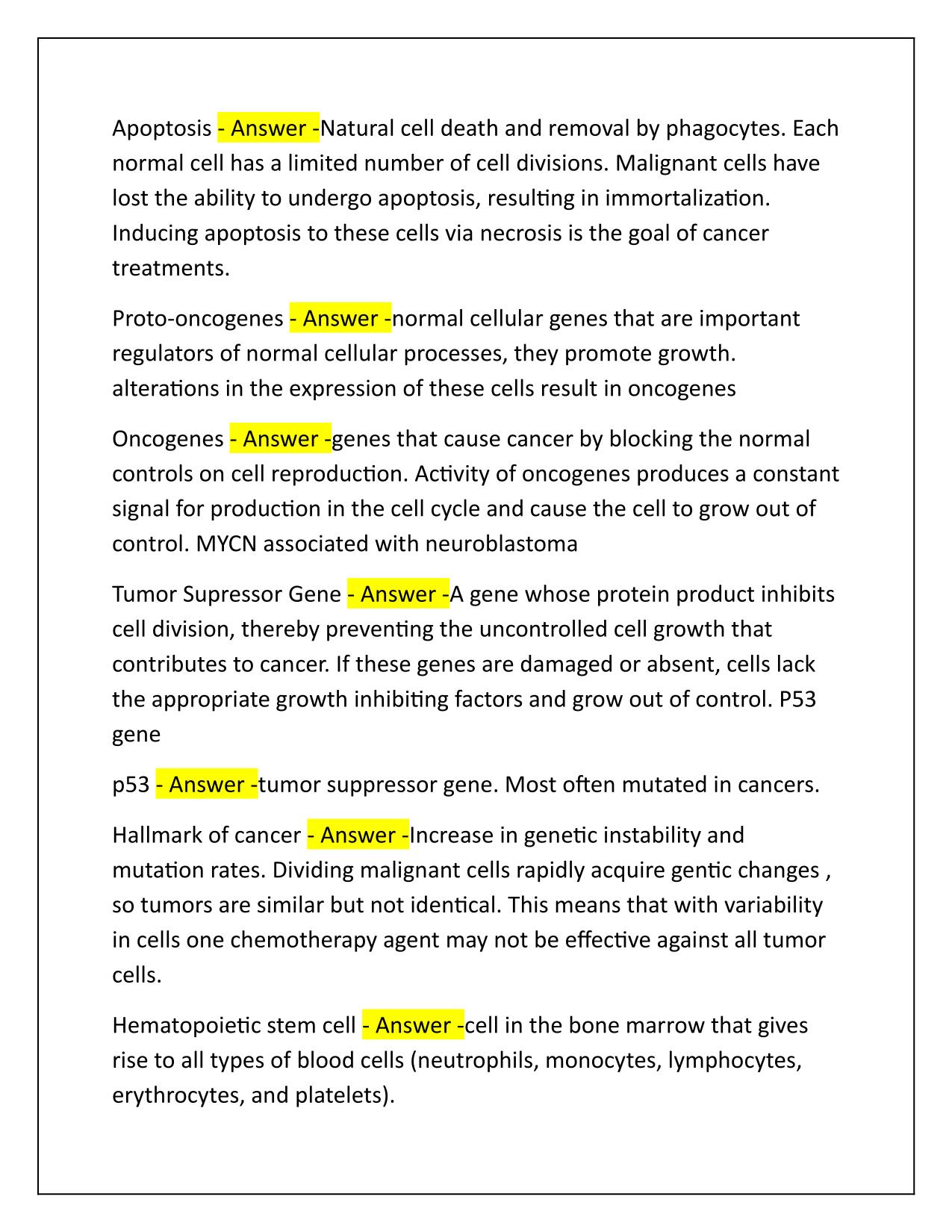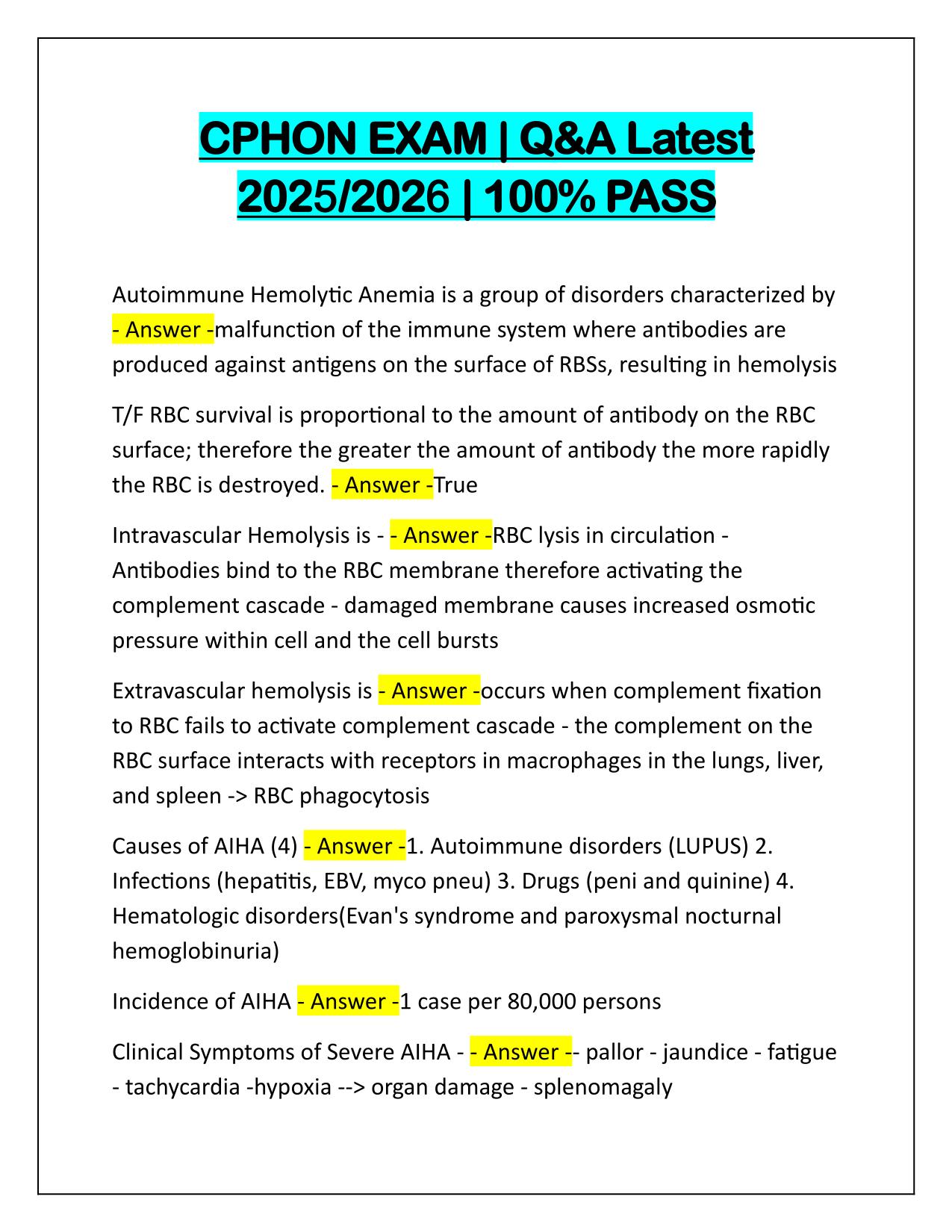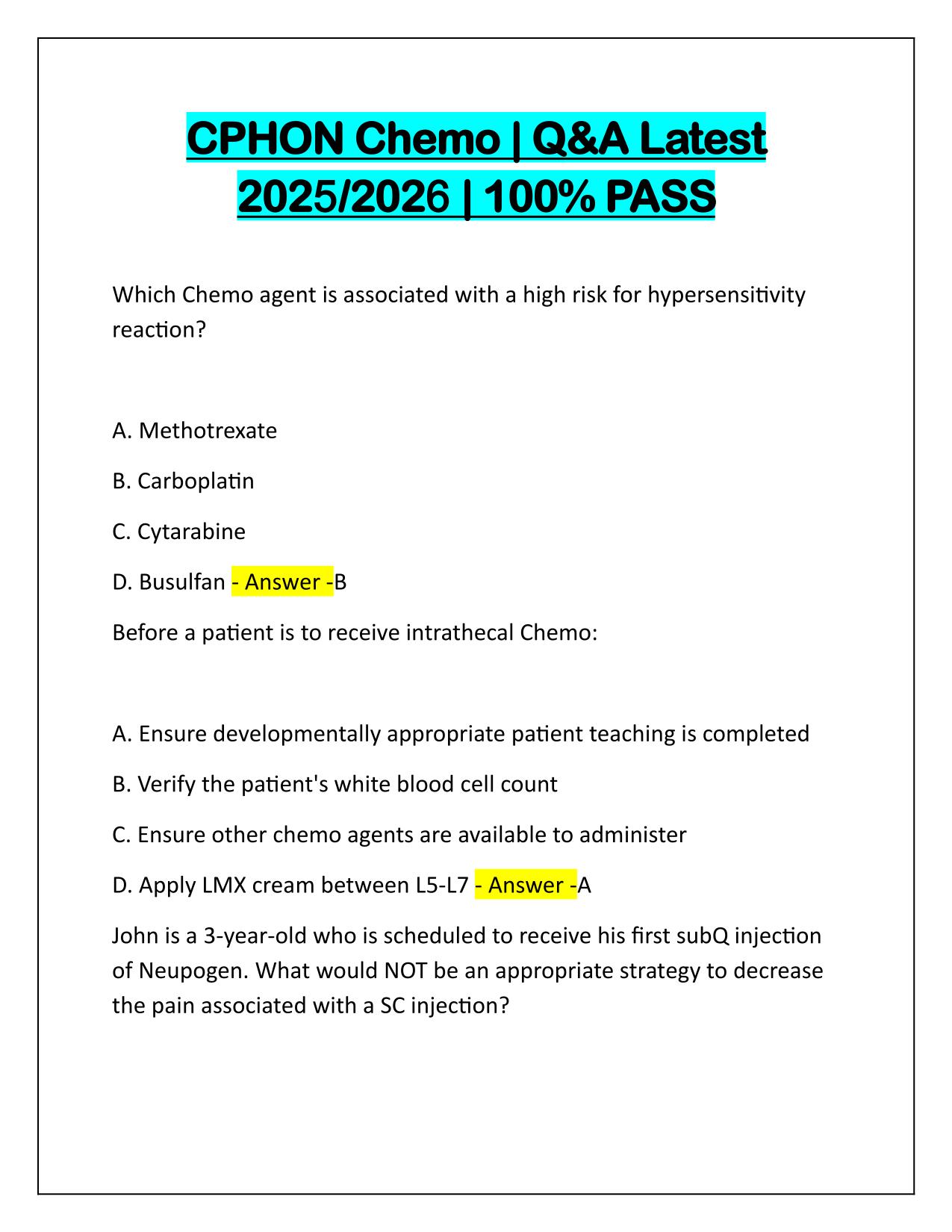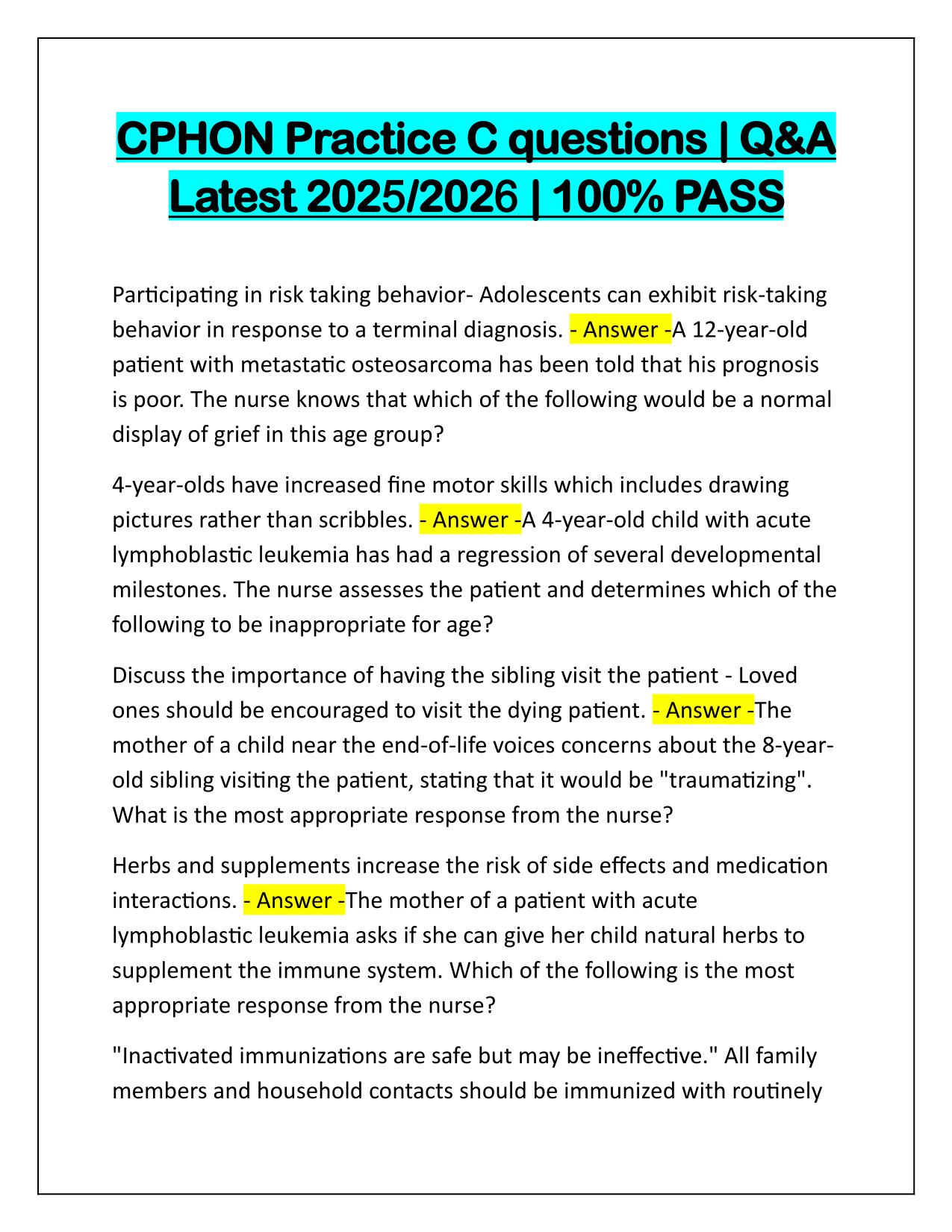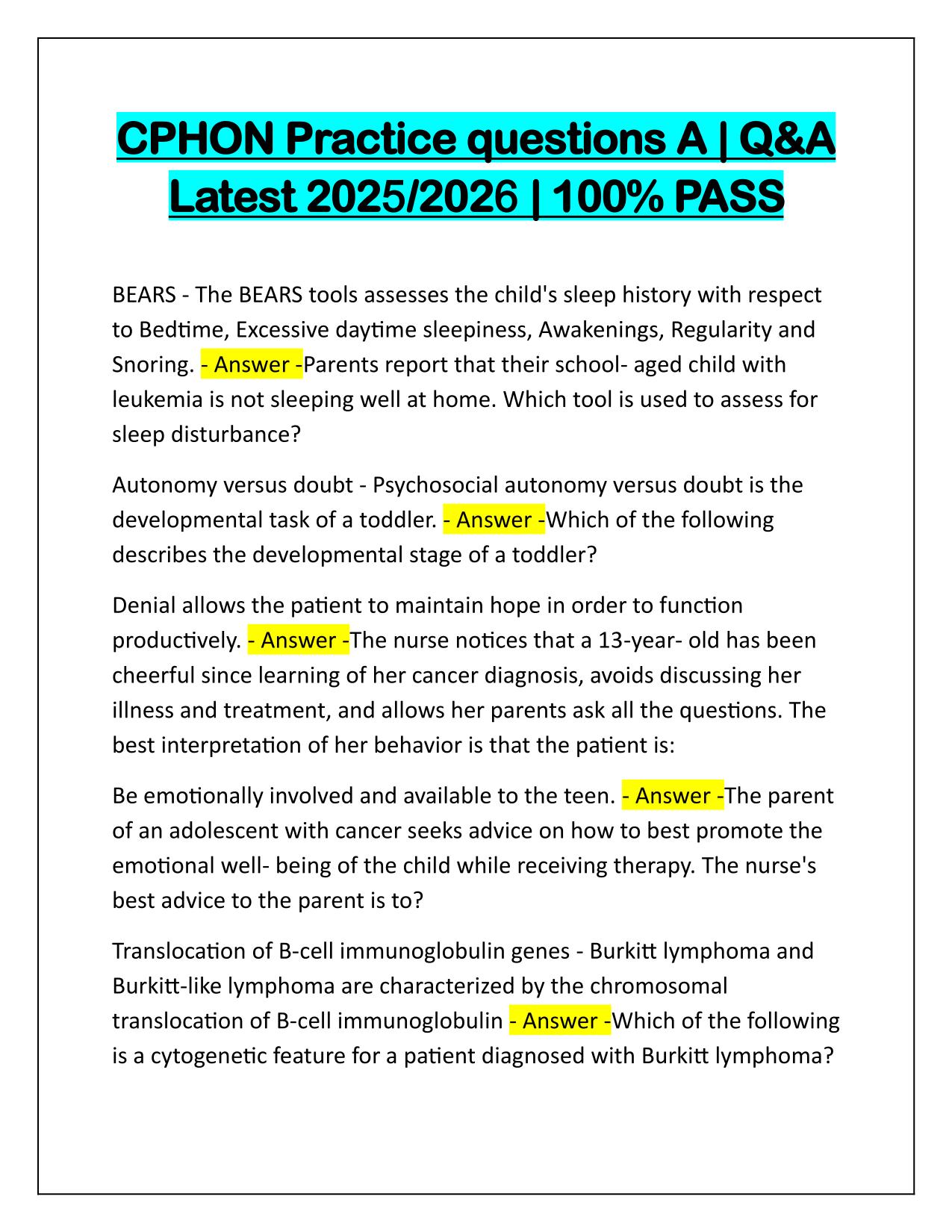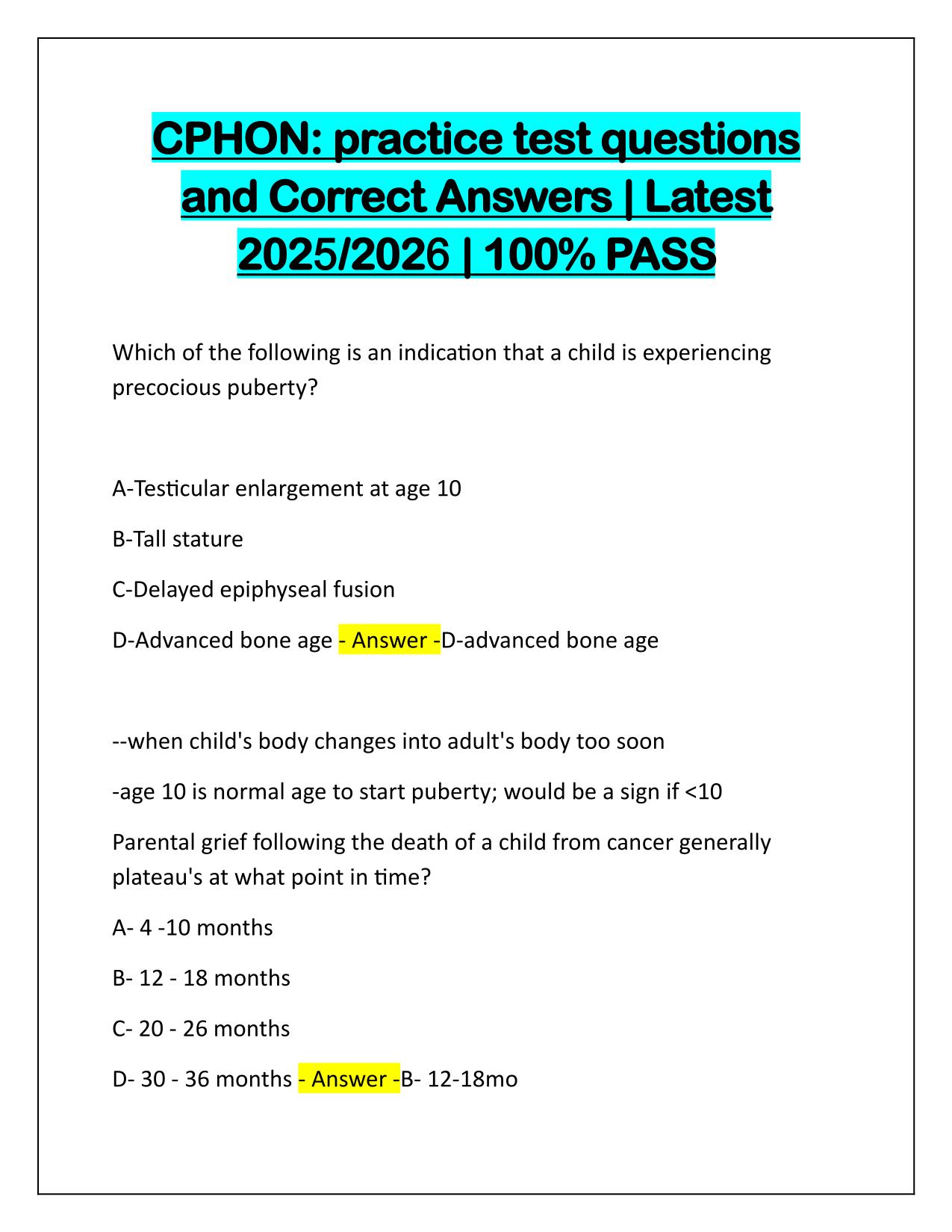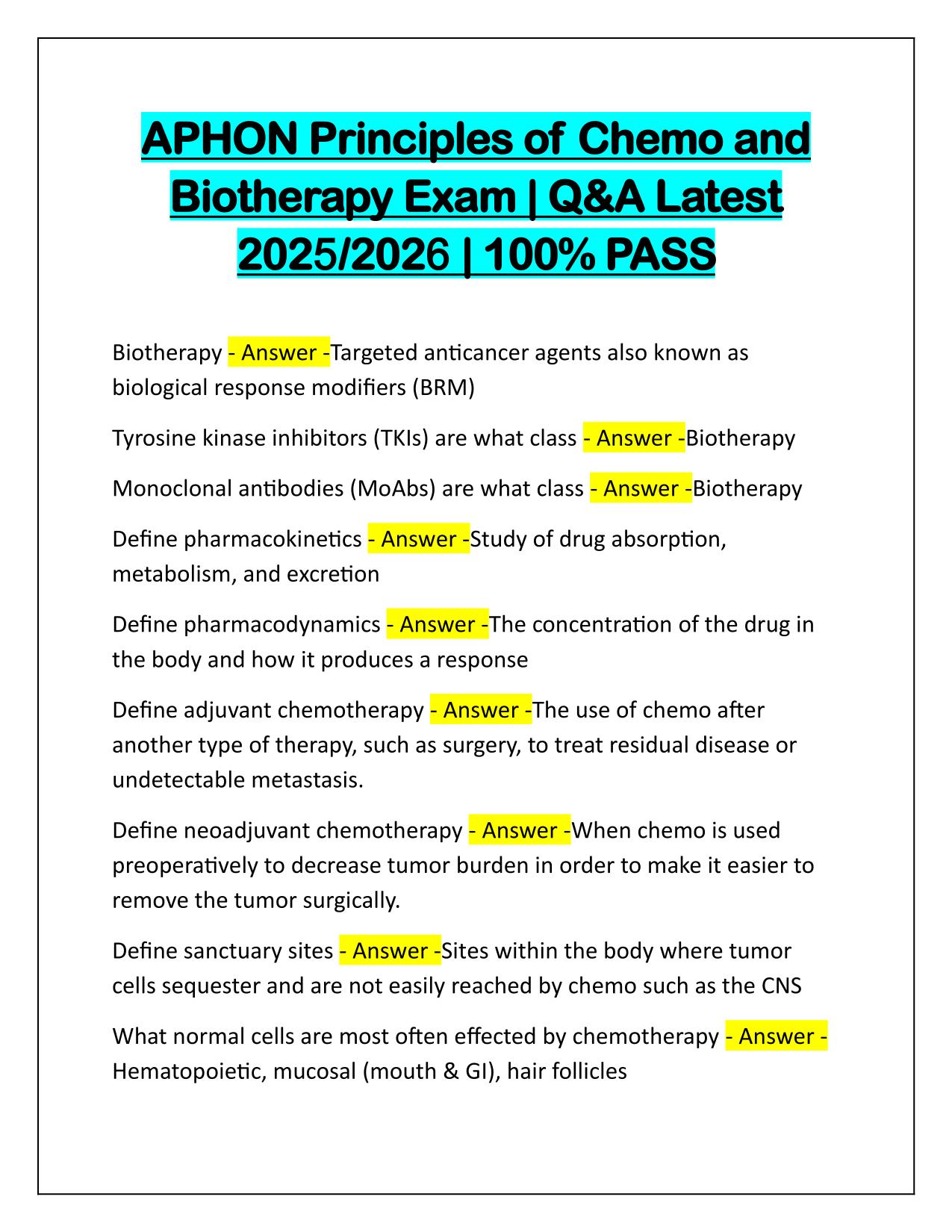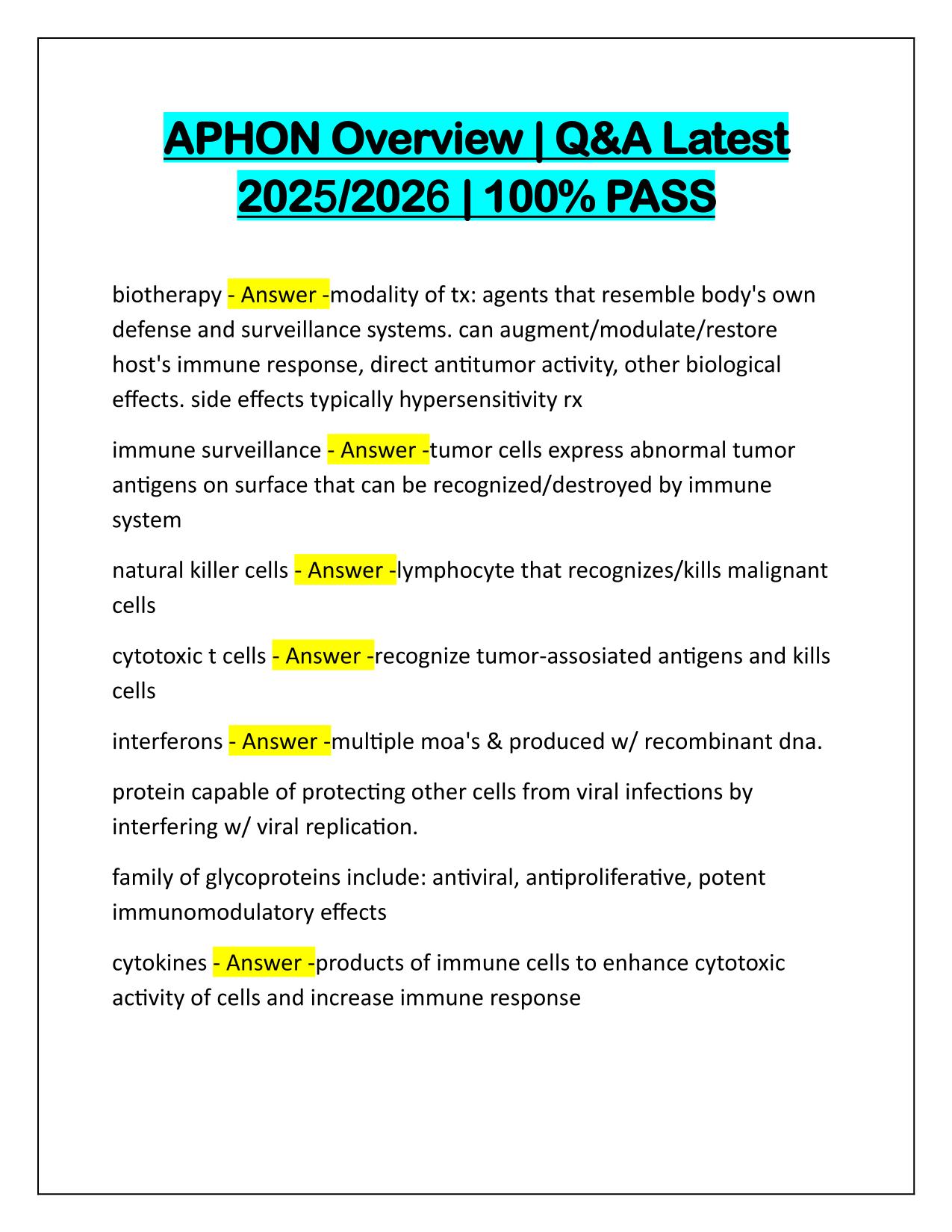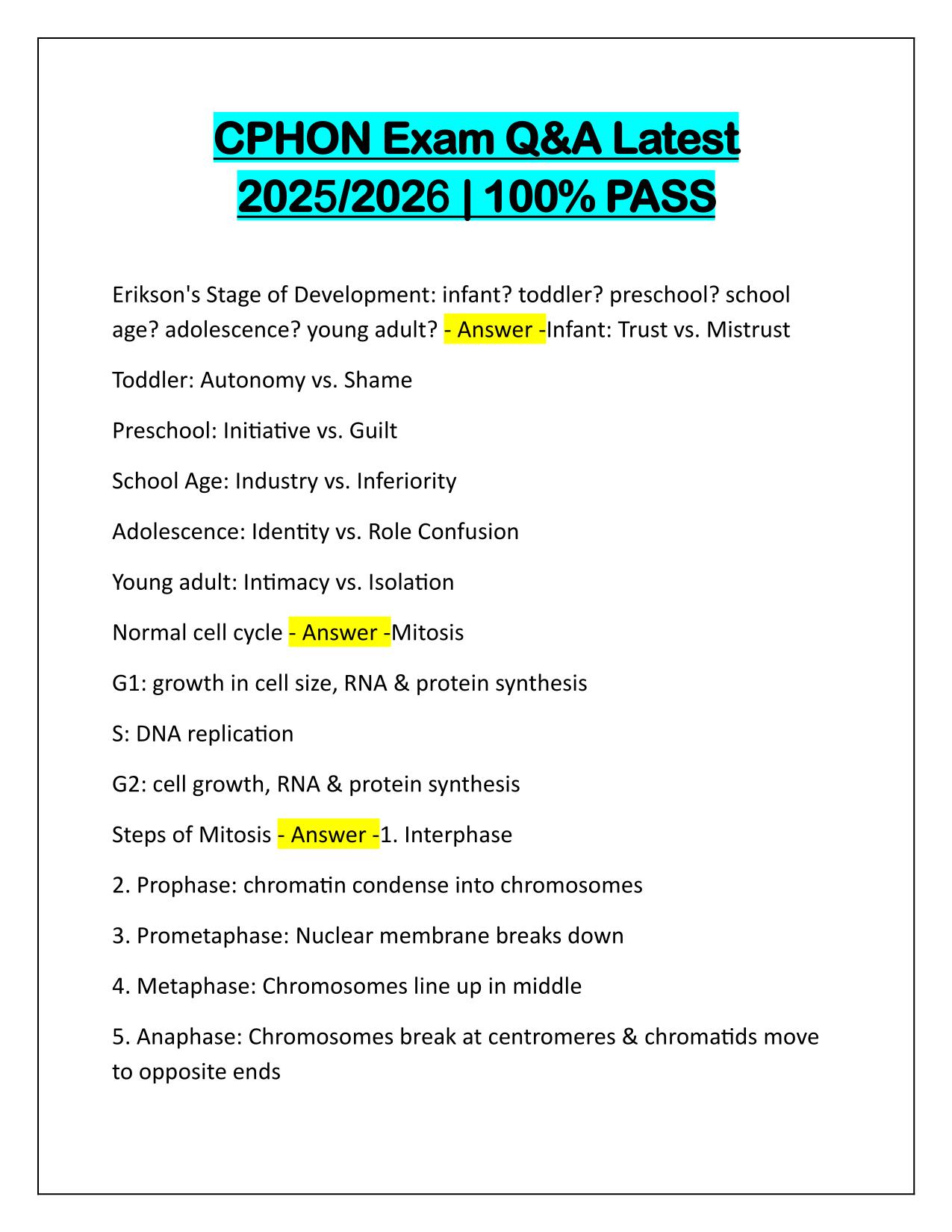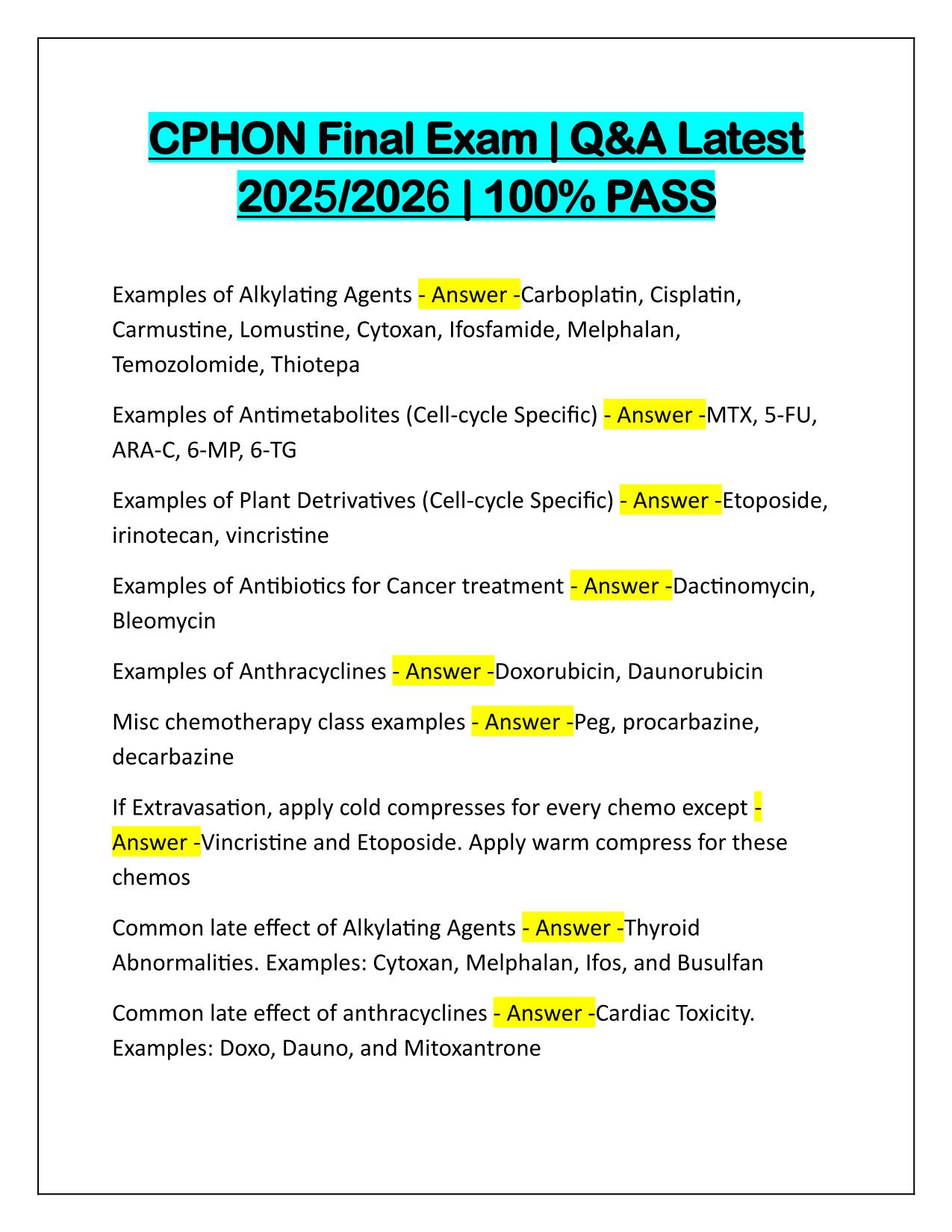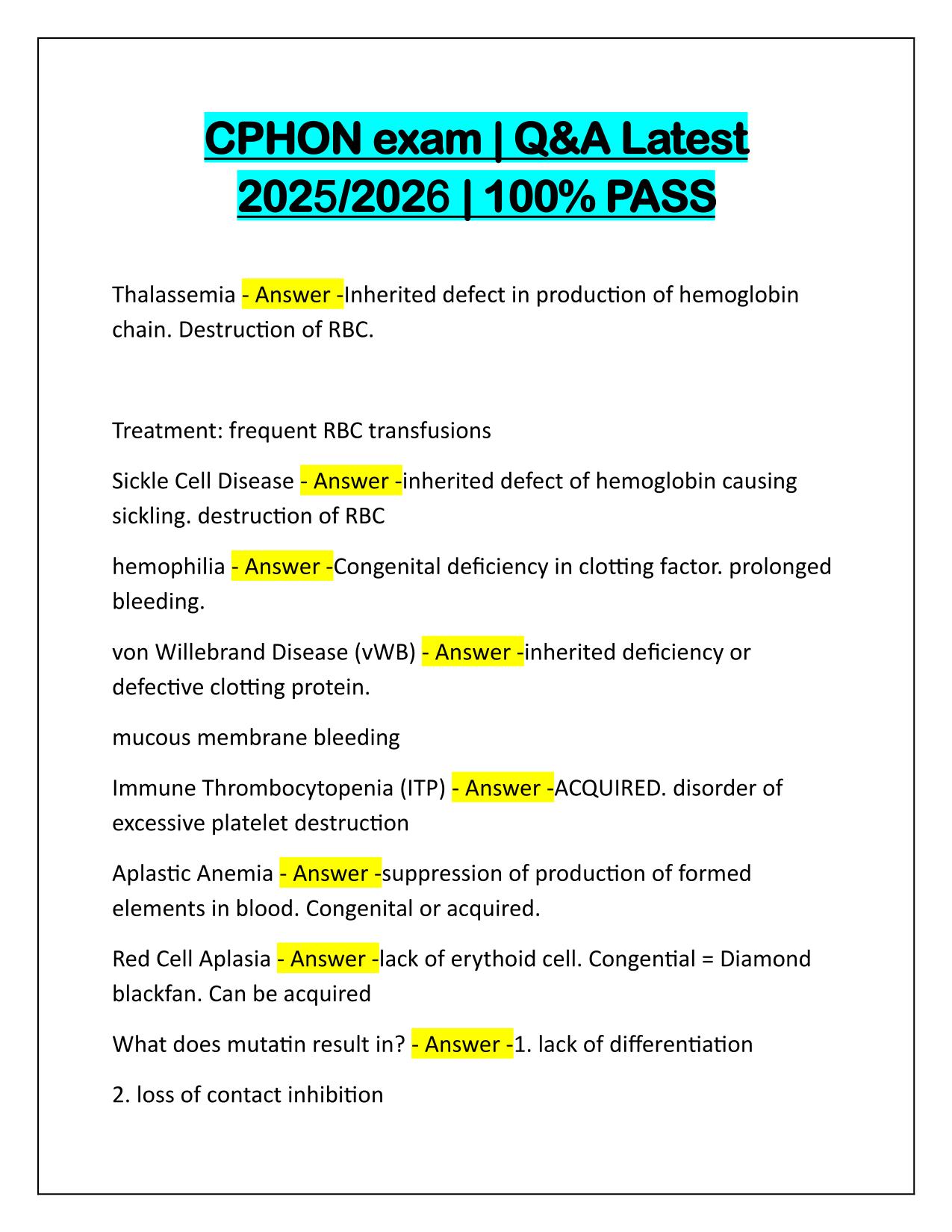CPHON Exam Questions and Verified Answers Latest 2025 Update
Course:
CPHON
Institution:
CPHON
CPHON Exam Questions and Verified Answers Latest 2025 Update
After purchase, you get:
✅ Instant PDF Download
✅ Verified answer explanations
✅ Refund if not Satisfied
✅ Prepared for 2025/2026 test cycle
Document Information
| Uploaded on: | May 2, 2025 |
| Last updated: | May 12, 2025 |
| Number of pages: | 21 |
| Written in: | 2025/2026 |
| Type: | Exam (elaborations) |
| Contains: | Questions & Answers |
| Tags: | CPHON Exam Questions and Verified Answers Latest 2025 Update |
Seller Information

AdelineJean
User Reviews (0)
Exam (Elaborations)
$9.50
Bundle Deal! Get all 12 docs for just $23.00
Add to Cart
100% satisfaction guarantee
Refund Upon dissatisfaction
Immediately available after purchase
Available in Both online and PDF
$9.50
| 0 sold
Discover More resources
Available in a Bundle
Content Preview
CPHON Exam | Q&A Latest 2025/2026 | 100% PASS G1 - Answer -The first gap, or growth phase, of the cell cycle, consisting of the portion of interphase before DNA synthesis begins. Cell grows larger and produces ribosome and proteins. S - Answer -All 46 chromosomes are replicated in the cells nucleus G2 - Answer -The second gap, or growth phase, of the cell cycle, consisting of the portion of interphase after DNA synthesis occurs. DNA is condensed into rod form . (M) Mitosis - Answer -Mitosis. Cells physically divides into two daughter cells, each with its own nucleus and identical chromosomes. G0 - Answer -Resting phase and Not succeptible to chemotherapy as it in not in active cell cycle. Preforming it's programmed function. Will either die or repair DNA. Cyclin dependent kinases (CDKs) - Answer -Stimulate the cell to proceed into the next phase of the cell cycle. Check points - Answer -Occur at G1, G2, and Mitosis; uses chemical and physical signals to monitor the growth of cells. In normal cells if DNA defects are found, progression through the cell cycle is halted. Errors that cannot be repaired result in cell death (apoptosis). In cancer cells these check points may be defective resulting in uncontrolled proliferation.
